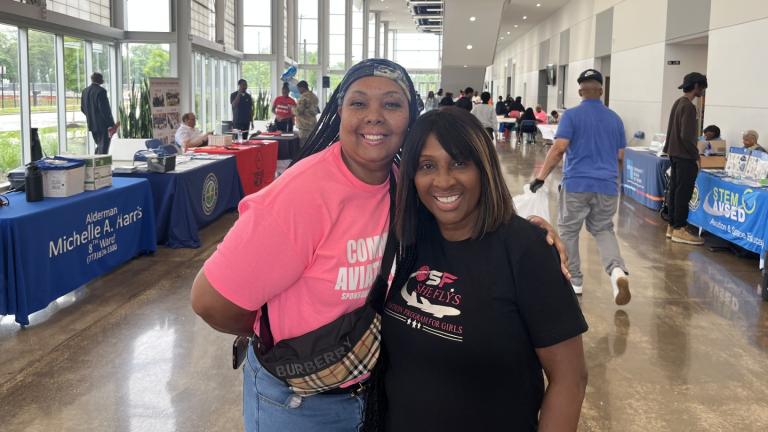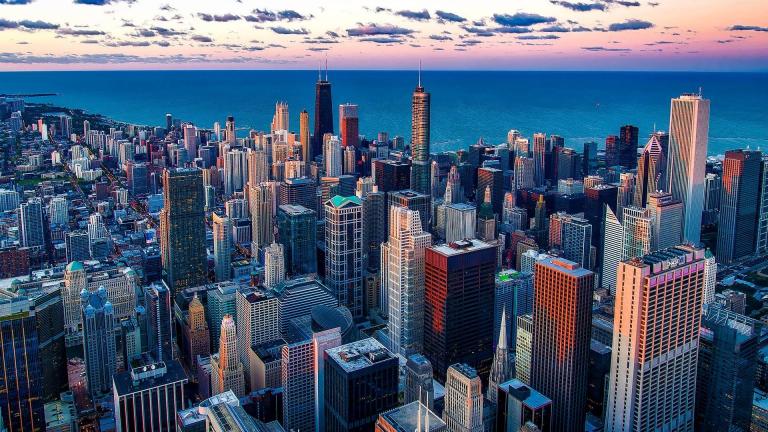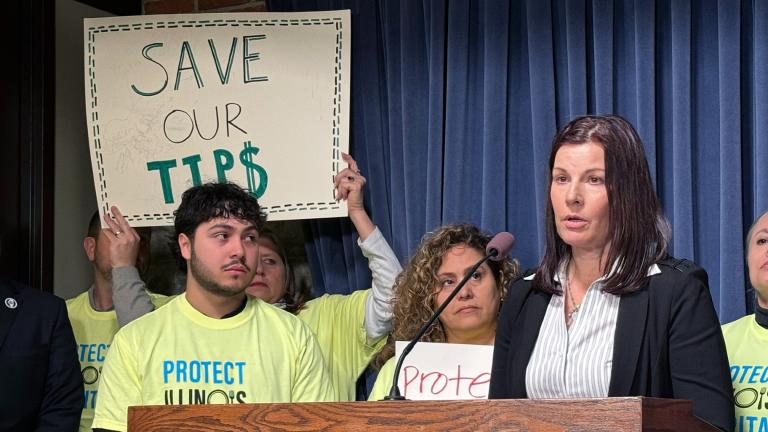Illinois’ minimum wage increased from $9.25 to $10 in July, despite a request from business owners to delay the hike during a pandemic.
But for employers whose take-home pay is largely dependent on tips – like restaurant servers – the minimum wage is $6.
A group of fast food, coffee house and other tipped wage workers on Monday called on state and local officials to do away with the tiered wage structure.
“We are here today to say that we are ending the legacy of slave wages,” said Nataki Rhodes of the national One Fair Wage campaign. “Black and Brown workers are the leading workers in the restaurant industry. Black women, Latinos, we are the leading workers in this industry.”
She says people of color are most impacted by the subminimum wage because of their occupations, as well as racism leading to lighter tips.
Cook County Commissioner Alma Anaya says as an immigrant and someone who used to work for tips, she stands in solidarity with tipped workers, especially during a pandemic given that in Chicago and elsewhere, Black and Latino individuals make up a disproportionate amount of COVID-19 cases.
“Why? Because they’re out there, and they have to work. They’re essential workers. This is unfair. It is an injustice and it’s racist,” she said.
Illinois and Chicago rebuffed attempts to eliminate the sub-minimum wage when their respective minimum wage laws passed in 2019.
A major reason: The Illinois Restaurant Association had worked out compromises, arguing that no employee should actually be making less than the wage floor. Should an employee not make enough in tips, it’s incumbent on the employer to pay the difference.
The association offered no comment for this story.
But it comes as business organizations generally say they’re having a hard time complying with onerous state mandates, at a time that the pandemic is making operations difficult.
The Illinois Retail Merchants Association earlier this summer tried to get the city and state to delay the July minimum wage hikes on the basis that many businesses were just reopening after COVID-19 orders had forced them to shut down for months.
“We’re trying to control costs, trying to operate our businesses profitably, trying to attract people back to our stores – inside the store inside the restaurant and enjoy our services – and at the same time not knowing how we’re going to manage and handle it all,” IRMA’s Tanya Triche Dawood said. “It’s been a very difficult environment.”
No business can expect to make a profit when they’re only permitted to operate at 25% or half capacity, she said, which means that regardless of the minimum wage many business owners have not been able to bring back their previous workforce.
The minimum wage hike also isn’t the only mandate they’re having to battle, she said.
In Chicago, an ordinance that requires workers get predictable schedules went into effect in July.
A new state rule advanced by Gov. J.B. Pritzker also mandates that businesses enforce Illinois’ social distancing and mask requirements on their customers, or face penalties that could include a $2,500 fine.
Triche Dawood said it’s one thing to ask a business to ask patrons to wear face coverings; it’s another to ask that they stand sentry whenever someone’s shopping – particularly given the threat that some customers can get angry and even physical when reminded to wear a mask.
“Are our employees now – who were hired as cashier – now they’re supposed to be security guards? And how forceful are we supposed to be with people? We can’t physically stop someone from entering, right? What do you want us to do, you want us to call 911? Are the police going to show up? When the police show up, they want to enforce against us for people not wearing masks,” she said
Politicians frequently ask business owners what they can do to help them thrive, and she said delaying the minimum wage increase, work scheduling ordinance and working with them on COVID-19 enforcement would have been ways they could have shown leadership and support.
She said businesses would still appreciate more clarity from the Pritzker administration and from the city; given discrepancies in enforcement in different localities throughout the state, and even from inspector to inspector.
Follow Amanda Vinicky on Twitter: @AmandaVinicky








